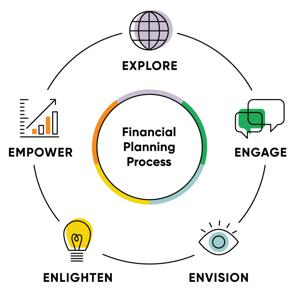
There are many advantages to owning shares in a company through a trust, including tax planning and asset protection benefits.
Watch this video to learn about what a trust is and why you should consider having one if you run a business.
VIDEO TRANSCRIPT:
This is Amal.
She’s launching her new business, a food delivery service using drones.
She’s structuring her business as a company where she will own some of the shares.
But before she can go any further, she needs to think about how she’s going to own the shares in her company.
How she owns her shares is important because it will affect how much tax she needs to pay and whether she can protect her shares if something goes wrong.
Amal could own her shares in two ways.
She can own them as an individual, or she can own them through a discretionary trust.
We’re going to look at why and how Amal might own her shares through a trust.
But first, what is a trust?
A trust is a legal relationship where one person or organisation, called the trustee, holds assets for the benefit of someone else.
These assets might be property, income, or, in this case, shares. the trustee will own them. This means that if you have a business partner, they can have their own trust to hold their shares.
Owning your shares through a trust makes sense for a couple of reasons.
Firstly, the trust can help you manage how much tax you need to pay as an individual.
When Amal’s company makes a profit, she can then choose to give shareholders some of the profit, known as dividends.
If Amal personally owns her shares, she will also receive these dividends as a shareholder, and they will be considered part of her personal income.
It would be added onto any other income that she is earning such as her salary.
As a result, she will be taxed at her individual marginal tax rate, which will likely be higher.
But if Amal owns the shares in her company through a trust, the dividends will be paid through the trust. the money from the trust to herself or other people, such as her family.
The trust doesn’t pay tax; instead, Amal will pay tax only on the amount of money that’s distributed to her through the trust.
In this case, as a trustee, Amal gives some of the money coming through the trust to her partner, Maya, which helps with their tax planning.
Secondly, a trust can also help protect your shares if something goes wrong.
For example, Amal is a director of her company.
She enters into a contract to supply her business with drones.
But when the delivery arrives, she realizes that she doesn’t have enough money to pay the bill.
Operating your business when it can’t pay its debts is a breach of directors’ duties.
If you reach your directors’ duties, you may be personally responsible for paying off your company’s debts.
This means that the supplier can sue Amal and take her personal assets, such as her car, to pay off the company’s debts.
The supplier cannot take Amal’s shares as the trust protects them.
So, a trust may be a great way for Amal to own her shares in her company, but how does a trust actually work?
Firstly, there is a trustee.
The trustee is the person who manages the trust and distributes the funds.
It’s a good idea to create a corporate trustee, which is a company that acts as the trustee.
Legally, the company is in control of the trust, but in reality, you are the person making decisions going to the bank and signing documents as director of the trustee company.
Secondly, there are beneficiaries in a trust. The beneficiaries are the people that can receive money or assets from the trust.
The beneficiaries will likely be you and your family members, or anyone else you choose to give money to.
Setting up a trust is a complex process, but it can be an effective financial strategy to consider as a business owner.


| Certified Estate Planner
|20+ Years in Wealth Management
| Holistic, Personalized Wealth Strategies
| All-in-one Solution from Singapore’s largest FA
👨👩👧👦 Empowering You To Build Financial Security And A Lasting Legacy
I get it. A decade in Asian IT sales taught me resilience — the dot-com crash taught me reinvention.
The dot-com crash reshaped everything, showing me the need to take control of my own financial future.
That turning point led me to wealth management, uncovering my passion for guiding others to grow and protect their financial futures.
💎 Lessons learnt: “Don’t just work hard for the money, but make money work smart for you.”
Estate and legacy planning deepened my purpose: true wealth means more than numbers — it’s securing your family’s story and values for generations.
Now I combine two decades of experience with a client-first, heartfelt approach.
I focused on what matters most — balancing financial growth with real-life protection.
👨👩👧👦 Today, I help families design holistic wealth strategies that endure through change.
🎯 My vision: I believe wealth should empower family values and create lasting legacies.
Holistic planning empowers you to:
🌟 Grow, protect, and preserve your wealth in alignment with your values, vision, purpose, and goals.
🌟 Navigate life’s uncertainties with confidence via risk-managed strategies.
🌟 Engage in a comprehensive, top-down, and goal-driven approach.
🎯 You’ll get:
✅ CLARITY ⇒ from tailored strategies — wealth growth, protection, and preservation aligned to your objectives.
✅ PROTECTION ⇒ from unexpected risks — liabilities, life events and market volatility — so you can focus on what matters most.
✅ PEACE OF MIND ⇒ from understanding hidden risks — blind spots and portfolio vulnerabilities — so you can protect what you’ve built, and what’s still to come.
💎 Here’s what my clients told me matters most:
➡️ Clear strategies that work: I restructured one client’s portfolio and and re-balanced regularly, doubling his returns in 5 years.
➡️ Protection when it matters: When a client was diagnosed with cancer and lost her job, her critical illness waiver kept her coverage intact.
➡️ Fiduciary advisory that puts the client’s interests at heart — not just pushing product sales.
➡️ Educating Clients on the risk of the products purchased — not just the benefits.
➡️ Estate plan that protects their assets and provide liquidity during crisis – providing them peace of mind.
🤝 If these concerns resonate with you, let’s together build a wealth blueprint for your legacy.
📧 Email me @ sofantan@fapl.sg
➡️ www.linkedin.com/in/sofantan-cep

By submitting this form, I confirm that
提交此表格,即表示
In compliance with the Personal Data Protection Act, Financial Alliance Pte Ltd (“FAPL”) seek your consent to collect and use your personal data (e.g. name, NRIC, contact numbers, mailing addresses, email addresses and photograph) for the purposes of and in accordance with FAPL’s Data Protection Policy, which can be found on FAPL’s website at https://fa.com.sg/data-protection-policy/.
根据《个人数据保护法》,鑫盟理财私人有限公司征求您的同意向您收集并使用您的个人信息。鑫盟理财将根据公司的个人数据保护政策所阐述的用途使用您的个人资料(例如姓名,证件号码,联系电话,邮寄地址,电邮地址和照片)。 该政策可在本公司网站上查寻,网址为 https://fa.com.sg/data-protection-policy/.
By submitting this form, you are deemed to have read and understood FAPL’s Personal Data Policy.
提交此表格,即表示您已阅读并理解鑫盟理财私人有限公司的个人数据政策
Subscribe to our newsletter to receive updates on our latest content!
By submitting this form, I confirm that
提交此表格,即表示
In compliance with the Personal Data Protection Act, Financial Alliance Pte Ltd (“FAPL”) seek your consent to collect and use your personal data (e.g. name, NRIC, contact numbers, mailing addresses, email addresses and photograph) for the purposes of and in accordance with FAPL’s Data Protection Policy, which can be found on FAPL’s website at https://fa.com.sg/data-protection-policy/.
根据《个人数据保护法》,鑫盟理财私人有限公司征求您的同意向您收集并使用您的个人信息。鑫盟理财将根据公司的个人数据保护政策所阐述的用途使用您的个人资料(例如姓名,证件号码,联系电话,邮寄地址,电邮地址和照片)。 该政策可在本公司网站上查寻,网址为 https://fa.com.sg/data-protection-policy/.
By submitting this form, you are deemed to have read and understood FAPL’s Personal Data Policy.
提交此表格,即表示您已阅读并理解鑫盟理财私人有限公司的个人数据政策